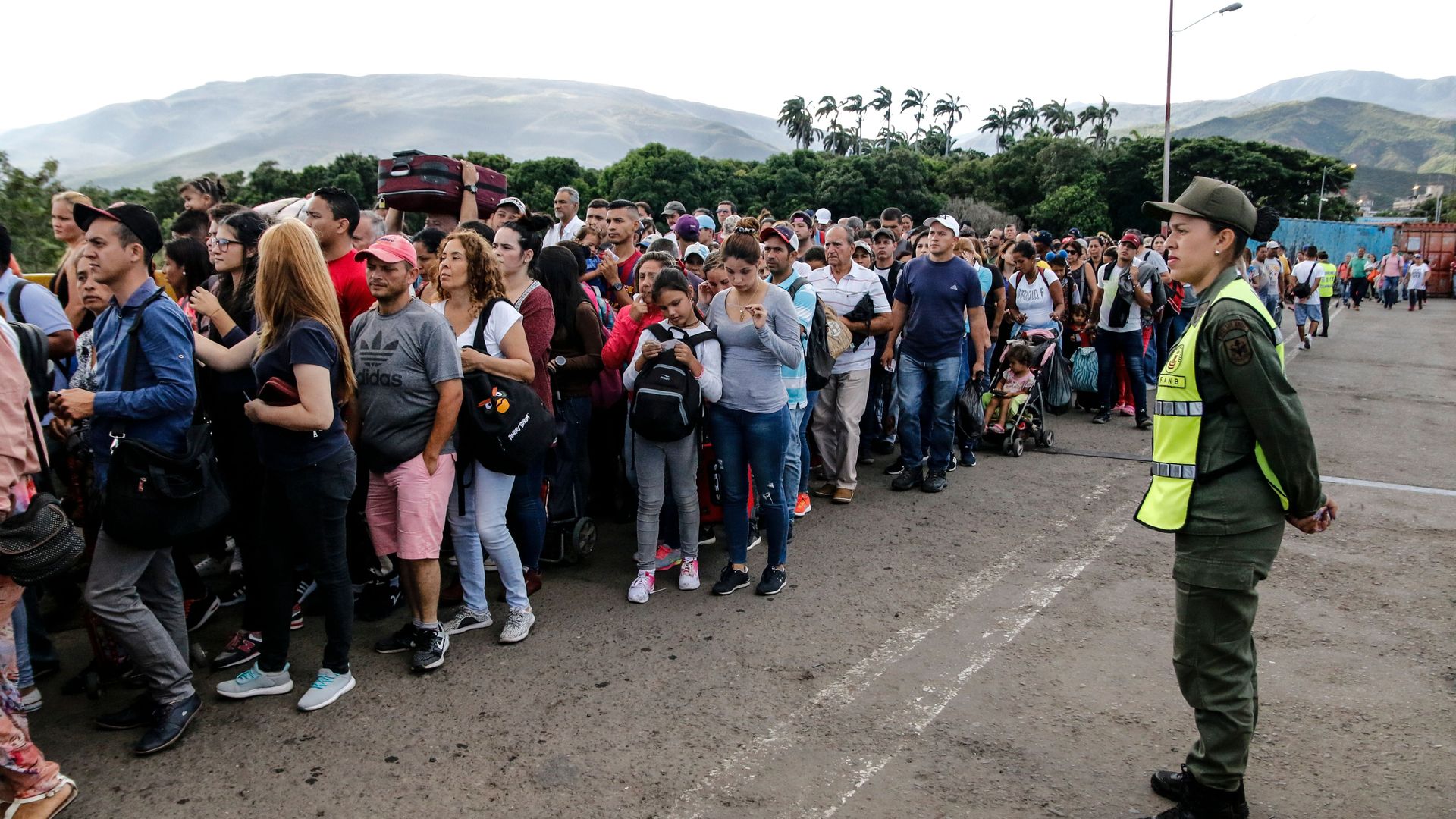Sep 19, 2019 - Politics & Policy
Venezuela refugee crisis overwhelms Colombia: "We don't have the money"
Add Axios as your preferred source to
see more of our stories on Google.

Crossing the Simon Bolivar bridge into Colombia. Photo: Schneyder Mendoza/AFP/Getty Images
